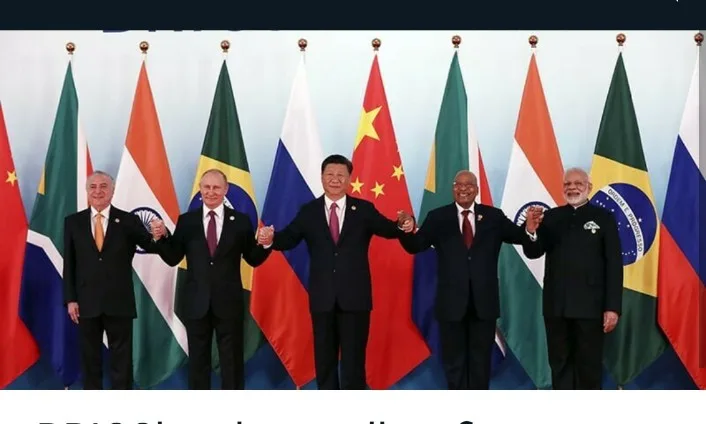In a historic move, Saudi state TV confirmed on Tuesday that the Kingdom has become an official member of the BRICS bloc, marking a significant expansion beyond its original constituents of Brazil, Russia, India, China, and South Africa. The BRICS family has now grown to include Saudi Arabia, the United Arab Emirates (UAE), Egypt, Iran, and Ethiopia.
This development takes place against the backdrop of escalating geopolitical tensions between the US and China, coupled with the increasing influence of China within Saudi Arabia. The official entry of Saudi Arabia, UAE, Egypt, Iran, and Ethiopia into the BRICS group became effective on Monday.
Despite enduring strong ties with the US, Saudi Arabia has shown a growing inclination to carve its independent path amid concerns about Washington’s commitment to the Gulf’s security. Saudi Foreign Minister Prince Faisal bin Farhan emphasized the BRICS group as a “beneficial and important channel” for reinforcing economic cooperation.
China, a key consumer of Saudi Arabia’s oil, has championed the expansion of BRICS to serve as a counterweight to Western influence. The new members signal a concerted effort to establish BRICS as a champion for the Global South, even though Argentina declined an invitation to join in November.
The invitation for Saudi Arabia, UAE, Egypt, Iran, and Ethiopia to join the BRICS bloc was extended in August 2023 after the 15th BRICS Summit in Johannesburg, South Africa. With these additions, BRICS now represents over 40% of the world’s population and more than 30% of global gross domestic product.
Commenting on the expansion, Ullas Rao, Assistant Professor of Finance at Edinburgh Business School of Heriot-Watt University in Dubai, remarked, “Both Saudi and the UAE, being among the richest countries on a per capita basis and home to the biggest sovereign wealth funds, create enormous growth opportunities through investments, trade, and commerce.”




